Community shark conservation in Turks and Caicos
Jillian is catalysing a community-driven shark conservation programme in Turks and Caicos. She is combining research and outreach to engage young locals in the conservation of sharks and their mangrove habitats. To understand the habitat use and movement patterns of young lemon sharks, Jillian will train local young adults to assist with the shark-tagging programme. High school students will be brought in to participate, and schools will be equipped with activities and in-person lessons. A curriculum for all the schools is part of Jillian’s hope to inspire a committed cohort of new ocean stewards who will outlast her programme.
I was born and raised in a small town in Maine and my love for the ocean started at an early age. Living on a lake and having parents who loved the water provided lots of opportunities to swim and explore. I spent countless hours trawling through tidal pools at the coast as well as snorkelling off our dock. During a trip to Florida for my dad’s work, I snorkelled with a shark for the first time at the age of eight. It was a small nurse shark and I was absolutely amazed. When I was five I...
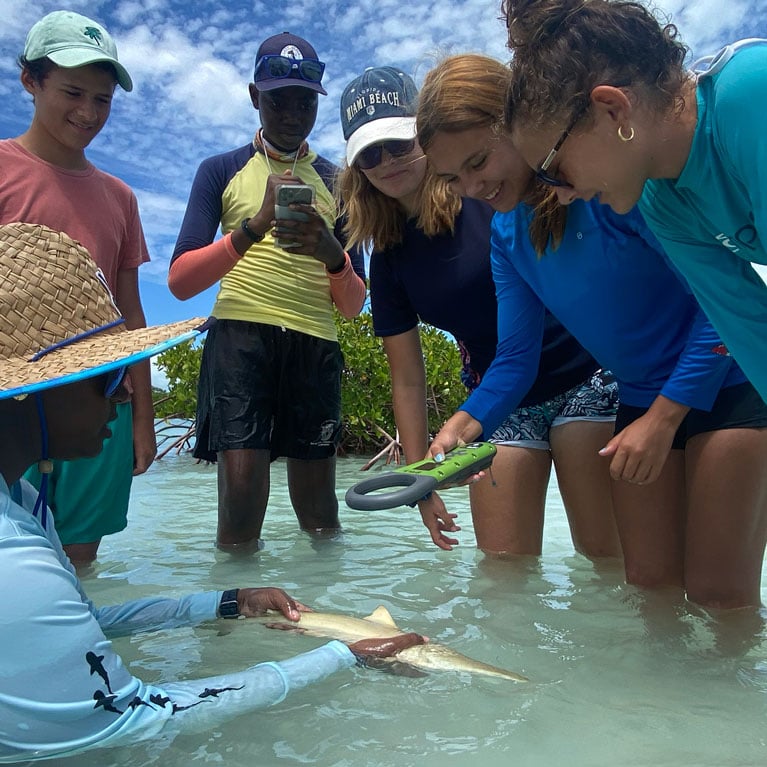
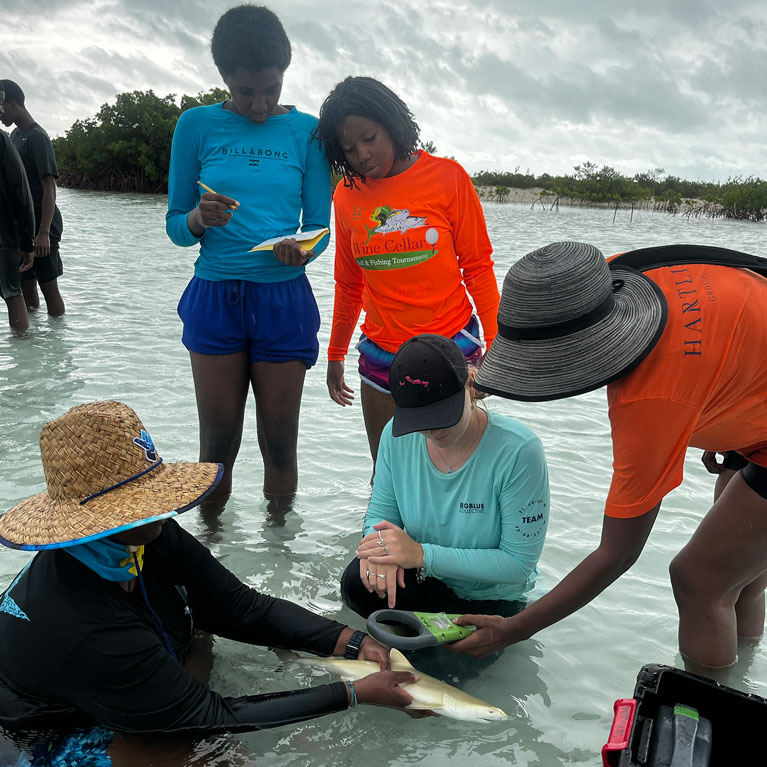
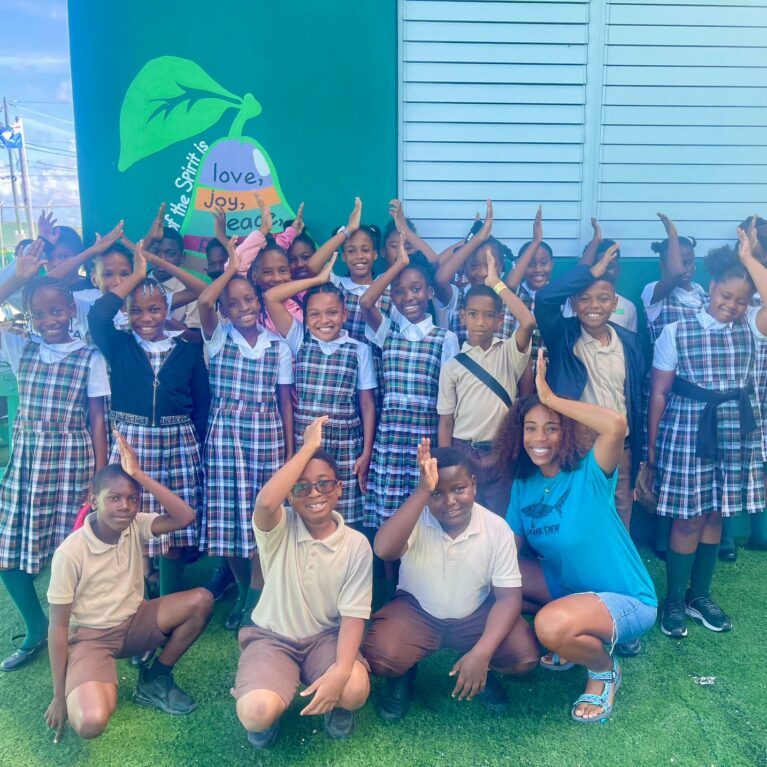
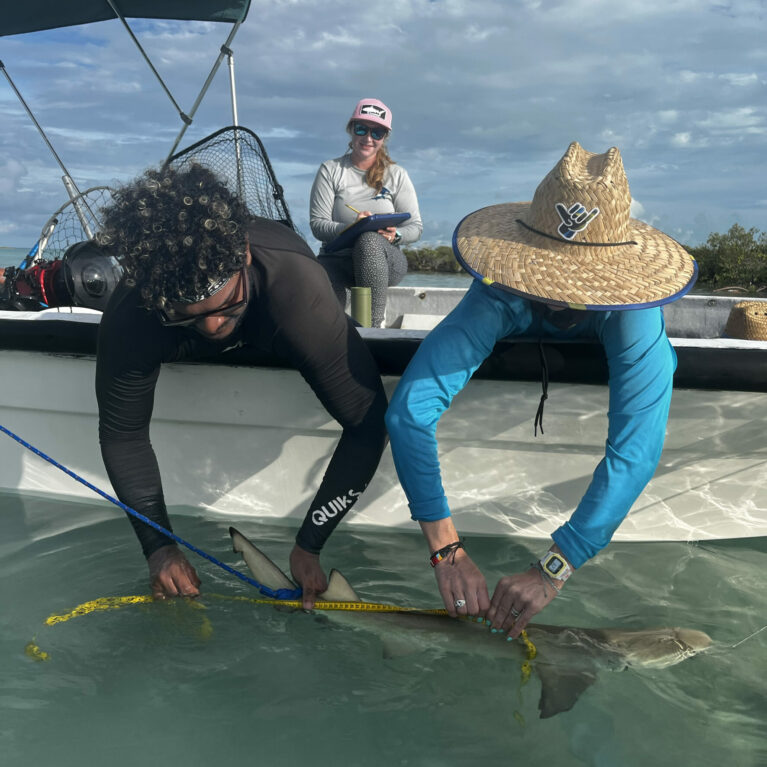
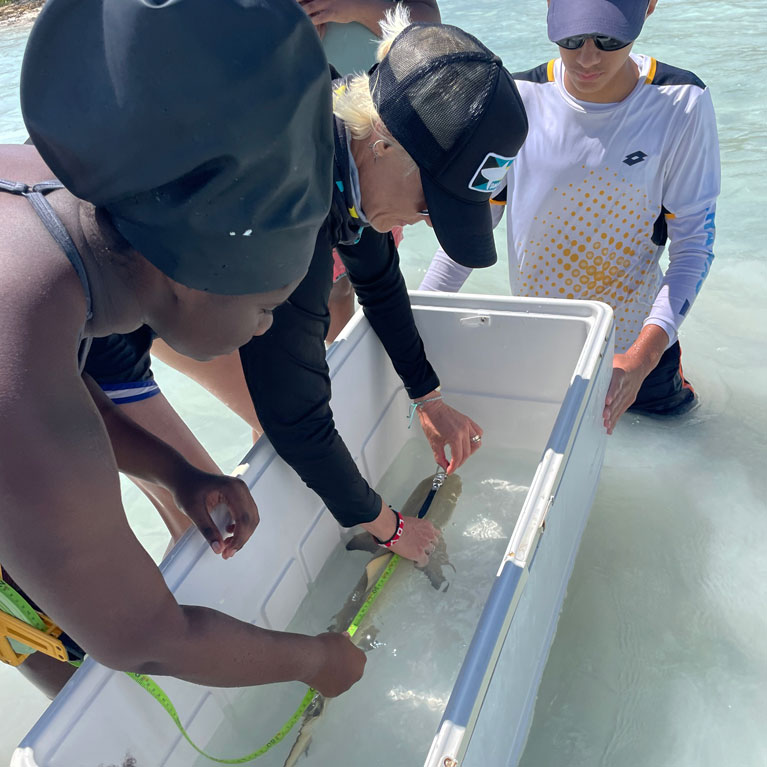
Empowering Youth: Creating access to science and education through hands-on field work to support conservation
To assess the population dynamics of juvenile lemon sharks in the region and to involve the local community in creating long-lasting conservation efforts through science, education and outreach.
The proposed legislation for shark protection in the Turks and Caicos Islands has yet to be finalised, due in part to the lack of scientific data. Sharks are still unprotected and legally harvested. While data have recently started to be collected on other species, the juvenile lemon shark population remains unstudied. We will work alongside local community members, combining scientific research with outreach to increase the sustainability of our conservation efforts.
The islands of Turks and Caicos are part of the same archipelago as The Bahamas, sharing similar habitats, species and environmental challenges. The entire exclusive economic zone of The Bahamas became a shark sanctuary in 2011, banning fishing for, sale of and possession of sharks or shark parts. Currently there is no protection for sharks in Turks and Caicos and the proposed legislation to ban commercial fishing and the export of products has gained no traction for nearly a decade.
This location presents an opportunity to create a community-driven research and outreach project. We don’t want to collect data and then share with locals; we want them to be there with us, not only participating, but also taking on leadership roles. There is a need for this and I know we can create something unique and powerful. As scientists, we often overlook the value of local stakeholders who have spent their lives in a location, on and in the water, and are invaluable in the creation of long-lasting conservation for any species. We also know that people are far more receptive when the information comes from someone they know or someone from the same area. Representation matters and we believe this to be a critical aspect of our efforts.
Recognising the importance of data collection as well as outreach, we’ve developed this proposal. Both sharks and mangroves are under threat and it is critical to collect data about them. By involving interested young adults, we can ensure that this project can be carried on and monitored long after we are gone. Giving students the chance to work with us means we are creating ocean stewards who will support ocean and shark conservation in the future.
The general aim is to combine research and education to create a community-driven shark conservation programme. We will accomplish this by focusing on five main objectives:
- To train three or four local young adults (aged 18–25) to assist with our tagging programmes.
- To bring in at least 50 local high school students to assist with shark tagging.
- To provide in-person lessons and interactive activity sessions to all schools in the Turks and Caicos Islands.
- To create and provide curricula, including lesson plans, activities and videos, to all schools on the islands.
- To implant PIT tags and take DNA samples from juvenile and sub-adult lemon sharks in order to better understand their habitat use and population dynamics.

